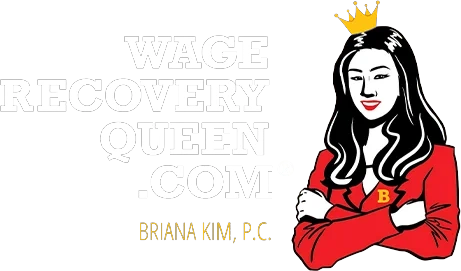Long Beach Sexual Harassment Lawyer

- Passionate
- Perseverant
- Reputable
- Resilient
Long Beach Sexual Harassment Attorney
Workers in Long Beach expect to come to their jobs without fear of harm or harassment. Unfortunately, sexual harassment is not uncommon in the area. If you are grappling with workplace sexual harassment, you are likely feeling alone and overwhelmed, unsure of what steps to take next. A Long Beach sexual harassment lawyer from Briana Kim, PC, is here to help you understand your rights and work through the legal process to bring your case to justice.
Briana Kim, PC, has years of experience helping survivors of workplace sexual harassment hold the responsible people and parties accountable for their wrongdoing or neglect. We can work to ensure your rights are protected, helping you implement an optimal legal strategy to efficiently navigate the processes required to pursue compensation and fight for a safer workplace for all.
An Overview of Workplace Sexual Harassment
Under the federal Title VII of the Civil Rights Act of 1964 and the California Fair Employment and Housing Act, sexual harassment is a form of discrimination that is strictly illegal. In the workplace, sexual harassment happens when a worker has to deal with unwanted or unwelcome sexual advances, jokes, comments, or other behavior that culminates in an overall hostile, offensive, or intimidating work environment.
In a legal context, sexual harassment is divided into two distinct categories:
- Quid Pro Quo Workplace Harassment
Quid pro quo harassment happens when an individual in a position of power, such as a manager or boss, demands that an employee perform sexual acts in exchange for certain benefits, such as continued employment, a pay increase, or a better position at work. Quid pro quo harassment can also constitute threats of negative consequences if the employee refuses to carry out the sexual acts demanded.A common example of quid pro quo workplace harassment is if your boss requests you to engage in a certain sexual activity in order to connect you with esteemed individuals in your field. Quid pro quo harassment is also known as “something for something” harassment. involves offering a benefit in exchange for something.
If you believe that quid pro quo harassment is taking place in your work environment, an experienced Long Beach sexual harassment lawyer from Briana Kim, PC, can assist you with your case.
- Hostile Work Environment
If unwanted sexual comments or behavior become so pervasive and frequent that they impede an employee’s ability to work effectively, this is known as a hostile work environment. If you are experiencing the following, you could be a victim of a hostile work environment:
- Display of sexually illicit or pornographic material at work that other employees are required to look at.
- Inappropriate jokes or comments about a person’s sexual activities or general appearance.
- Unwanted sexual advances that continue to persist.
- Lewd comments about a person’s sexuality, gender, or appearance.
- Repeated requests for romantic relationships or dates, even after being told no.
- Unwelcome physical contact, such as brushing, groping, or touching.
Adequate evidence must be collected to demonstrate that the conduct is frequent and severe enough to create a workplace environment that someone would reasonably deem abusive or intimidating. If you are dealing with a hostile work environment, an experienced Long Beach sexual harassment lawyer from our firm can help you gather sufficient evidence to strengthen your case and hold the perpetrators accountable.
Forms of Workplace Sexual Harassment in Long Beach, California,
Sexual harassment in the workplace can take on many forms. Being aware of the different kinds of sexual harassment that are common can help workers identify and actively address harassment in the workplace, keeping employees safe. Briana Kim, PC, has helped various clients in Long Beach pursue justice for their workplace harassment cases, with common forms of sexual harassment being:
- Unwanted physical touch. Any form of physical contact, such as hugging, touching, or groping, that is unwelcome and not required for work constitutes harassment. Physical contact can be particularly damaging to victims, contributing to feelings of fear and lack of safety in the workplace.
- Lewd jokes or comments. Comments or jokes of a sexual nature about an individual’s appearance or regarding their sexual experiences constitute verbal harassment. Even if the offenders claim that they are just “joking around,” these instances can quickly lead to a hostile work environment if they are severe enough or happen frequently enough to make the workplace unsafe.
- Unwelcome sexual advances. One of the more common instances of workplace harassment seen at our firm is unwelcome sexual advances, including repeatedly asking a person out on a date for a romantic relationship or asking for sexual favors. If these advances are nonconsensual and persist even after denial, this constitutes harassment.
- Sexual harassment from clients. While people commonly think that sexual harassment is only perpetuated by employers or other employees, it can also come from clients or customers. Under California law, employees are protected from workplace harassment by non-employees. If your employer has been made aware that a non-employee is harassing you and has not taken adequate steps to address the situation, you can likely take legal action.
- Explicit displays or gestures. Another common form of harassment includes the display of lewd images, inappropriate gestures, or the showing of material of an explicit nature at work. Examples can include putting up explicit images in common areas, sharing lewd content via online work chats, or engaging in sexually suggestive movements or gestures to offend or intimidate another worker.
As sexual harassment can come in many different forms, it is important to trust your gut if recurring behavior of a lewd nature is happening in your workplace. Briana Kim, PC, offers an initial consultation in which you can discuss your workplace situation in a confidential, pressure-free manner to determine whether what is happening at work constitutes illegal activity.
Who Can Be Held Liable for Sexual Harassment
Depending on the facts of the case, several individuals or entities can be held legally accountable for your sexual harassment. Some common parties that could be held liable include:
- Employers and Supervisors
- Coworkers
- Vendors
- Customers
- Individual Harassers
- Corporate Leadership
- HR Departments
At Briana Kim, PC, we take the duty of figuring out who’s legally responsible seriously so victims can reclaim their dignity and move forward with confidence under California’s sexual harassment laws.
Dealing With Workplace Harassment? Know Your Rights
Workers have a right to come to work without fear of harassment under both federal and California laws. This legal framework offers robust protection for individuals dealing with sexual harassment in the workplace. If you suspect that sexual harassment is occurring in your workplace, or if you are personally dealing with harassment, it is crucial to understand these laws so that you can protect yourself and exercise your right to pursue justice.
Title VII of the Civil Rights Act of 1964
Title VII of the Civil Rights Act of 1964 is federal legislation that makes it illegal for employers to discriminate against employees on the basis of sex and includes instances of sexual harassment. Under these federal provisions, it is unlawful for employers to retaliate against workers who report workplace harassment. This law, however, has scope (subject matter/time) limitations. For example, it applies to organizations with more than 15 employees.
California Fair Employment and Housing Act
Under the California Fair Employment and Housing Act (FEHA), Californians are protected from workplace discrimination. This law states that sexual harassment is strictly illegal, despite the size of the company or employer. This means that even employers with only one employee can be held responsible for harassment.
FEHA also addresses harassment by non-employees, including contractors, customers, or other clients, in cases where the employer knew or should have known of the harassment and failed to take adequate action. FEHA is a more comprehensive piece that expands upon the federal rights issued under Title VII.
The Right to Be Free From Workplace Retaliation
Under both Title VII and FEHA, workers are protected from retaliation if they report sexual harassment or participate in investigations of harassment. Examples of retaliation include demoting, firing, reducing hours or pay, or excluding employees from work opportunities due to complaints. If you are being retaliated against by your employer because of a sexual harassment claim, you likely have legal grounds for a case.
What to Do if You Believe Sexual Harassment Is Occurring in Your Workplace
If you or an employee is being subject to sexual harassment, it is critical to document any incidents of this harassment. Store all forms of communication relevant to the incidents, such as text messages and work chats, in a safe place. Keep a detailed log of all incidents, including the location, people involved, and the time of each incident.
Based on your company’s policy, report the harassment to HR or your supervisor. By reporting this incident, you can have a formal record of the workplace harassment issues and give your employer a chance to adequately respond. Unfortunately, however, employers may not always take the action needed to put a stop to the harassment.
It is highly recommended to consult with an experienced Long Beach employment lawyer to ensure your rights are protected and that you can successfully navigate the legal process for your sexual harassment case. They can help you file a complaint with a government agency, such as the Equal Employment Opportunity Commission, and help you follow through with a legal claim if necessary.
Damages Available in a Sexual Harassment Case
The financial strain, emotional toll, and loss of trust in your workplace when you’ve been sexually harassed can affect every part of your life. California law allows victims to recover compensation for these harms, and you could be entitled to damages for:
- Lost wages and benefits because of demotion, termination, or a forced resignation
- Emotional distress damages for anxiety, humiliation, or trauma caused by the harassment
- Punitive damages when the employer’s conduct was malicious, reckless, or intentionally harmful
- Reinstatement or policy changes to prevent future harassment and protect other employees
- Front pay to compensate for future lost income when returning to your former job isn’t possible
- Medical expenses for therapy, counseling, or other treatment related to the emotional impact of harassment
- Loss of career opportunities or damage to your professional reputation caused by retaliation or wrongful termination
- Attorney’s fees and court costs so that victims aren’t burdened by the cost of justice
- Interest on unpaid wages or settlements to account for the time value of money lost because of your employer’s misconduct.
At Briana Kim, PC, we fight for fair and meaningful compensation that reflects the full scope of your suffering and loss. Our goal is to help you rebuild your life with confidence, knowing that your voice was heard and justice was served.
Deadlines for Filing a Claim
According to FEHA, you generally have three years from the day of the most recent incident to file a claim with the CRD. If you file with the EEOC, the deadline is usually 300 days.
After receiving a right-to-sue notice, you have one year to file a civil claim in court. Missing these deadlines can stop you from recovering compensation, which is why contacting a Long Beach sexual harassment attorney early on is essential.
Hire a Sexual Harassment Lawyer
Taking legal action when you’ve been sexually harassed at work can feel intimidating, but when you hire a sexual harassment lawyer, you gain a powerful ally who can guide you through every stage, because the steps you take early on can strengthen your case. Those steps include:
- Keep detailed records of each incident and save any emails, text messages, or social media posts that show inappropriate behavior
- Notify your employer or human resources department, in writing, as soon as possible
- If your employer fails to take action or retaliates against you for speaking up, document it
- File a complaint with either the CRD or the EEOC
- Maintain records of all communications with your employer, HR, and any agency representatives involved in your case
A dedicated Long Beach sexual harassment attorney from Briana Kim, PC, can handle the legal process, advocate for your rights, and fight for the compensation and closure you deserve.
Fight Back Against Workplace Harassment With a Long Beach Sexual Harassment Lawyer
If you are dealing with sexual harassment at work, such as unwanted sexual advances or comments of a sexual nature, you do not have to deal with these egregious patterns of behavior alone. An experienced Long Beach sexual harassment lawyer from Briana Kim, PC, is here to lend an empathetic ear, help you collect evidence that supports your case, and guide you through complex legal processes to bring your case to justice. Contact us today to get started.




